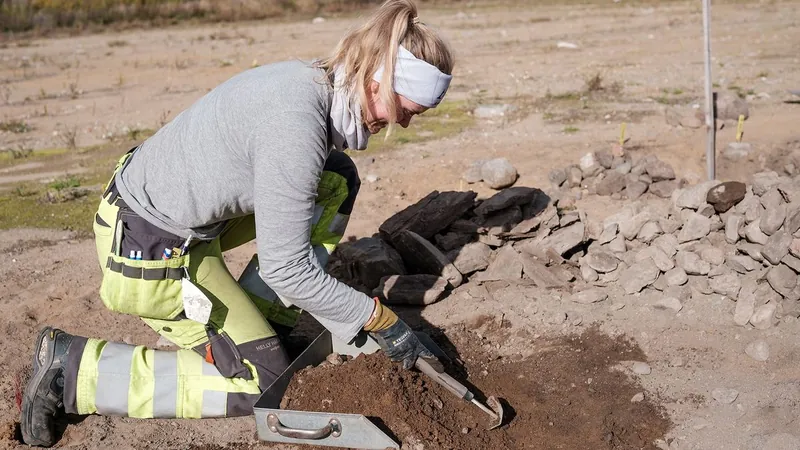
Why Integrative Palliative Care is Vital for Mental Health in Pancreatic Cancer Patients
2024-11-05
Author: Li
Introduction
Pancreatic cancer, known for its aggressive nature, often comes with a plethora of challenges, not least of which is the mental toll it takes on patients diagnosed with this life-altering disease. A groundbreaking study published in *Healthcare* sheds light on the critical yet underutilized role of palliative care in enhancing the quality of life for these patients.
Mental Health Challenges
The research reveals that a staggering 75% of newly diagnosed pancreatic cancer patients do not receive a palliative care consultation within their first year of diagnosis. This is particularly concerning given that one in three patients experiences symptoms of depression or anxiety, yet only 50% of these individuals receive any form of mental health support, whether through therapy or medication.
Expert Insights
Dr. Divya Subramaniam, an associate professor at Saint Louis University’s School of Medicine and the lead author of the study, emphasizes the importance of addressing the comprehensive suffering these patients endure. "They experience not only physical pain, but also the deep emotional distress stemming from fears about their futures, loss of functionality, and challenges to their dignity," she stated. This study is the first to explore the onset of mental health issues in conjunction with the initiation of palliative care, illuminating a significant gap in care.
Study Findings
"The findings present a stark picture of the low uptake of palliative care among patients facing advanced cancer diagnoses. It reveals a pressing need to improve the quality of life for those navigating this difficult journey," Dr. Subramaniam noted.
Research Data
The research analyzed a sample from a national all-payer medical record database, focusing on 4,029 adult patients newly diagnosed with pancreatic cancer. Notably, almost half of the patients were over 70 years old and more than 70% had multiple serious health conditions in addition to their cancer diagnosis.
Concerning Trends
Interestingly, the study also highlighted a concerning trend: older patients and those struggling with either depression or anxiety alone (but not both) were less likely to receive mental health treatment. However, the presence of palliative care consultations did not significantly influence the likelihood of obtaining mental health support, indicating a disconnect in the care framework that warrants further investigation.
Call for Integration
"Integrating mental health and palliative care should be a priority for quality cancer care, especially in cases as severe as pancreatic cancer," Dr. Subramaniam added. She advocates for a holistic approach to patient-centered care that prioritizes mental health alongside physical treatment interventions.
Conclusion
As we move forward in the battle against pancreatic cancer, this study serves as a call to action for healthcare providers, caregivers, and policymakers alike. A more comprehensive approach to care, recognizing the intertwined nature of physical and mental well-being, could dramatically enhance the lives of patients facing one of the most challenging cancer diagnoses.
Stay tuned as we continue to explore the ongoing challenges and breakthroughs in the field of cancer care, and how integrated palliative solutions can redefine patient experiences.



 Brasil (PT)
Brasil (PT)
 Canada (EN)
Canada (EN)
 Chile (ES)
Chile (ES)
 España (ES)
España (ES)
 France (FR)
France (FR)
 Hong Kong (EN)
Hong Kong (EN)
 Italia (IT)
Italia (IT)
 日本 (JA)
日本 (JA)
 Magyarország (HU)
Magyarország (HU)
 Norge (NO)
Norge (NO)
 Polska (PL)
Polska (PL)
 Schweiz (DE)
Schweiz (DE)
 Singapore (EN)
Singapore (EN)
 Sverige (SV)
Sverige (SV)
 Suomi (FI)
Suomi (FI)
 Türkiye (TR)
Türkiye (TR)